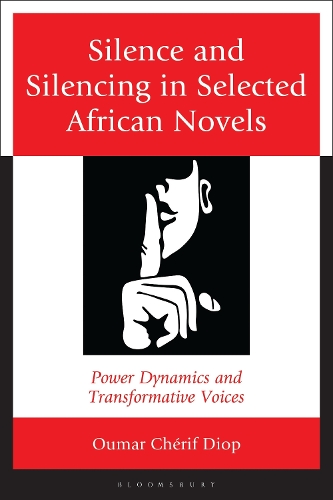
Silence and Silencing in Selected African Novels: Power Dynamics and Transformative Voices
(Hardback)
Publishing Details
Silence and Silencing in Selected African Novels: Power Dynamics and Transformative Voices
By (Author) Oumar Chrif Diop
Bloomsbury Publishing PLC
Rowman & Littlefield Publishers
13th November 2025
United States
Classifications
Professional and Scholarly
Non Fiction
Psychology of gender
Gender studies, gender groups
Society and Social Sciences
Physical Properties
Hardback
176
Width 152mm, Height 229mm
Description
Through literary analysis, this book examines how African writers address silence and oppression in novels and poetry.
Silence and Silencing in Selected African Novels: Power Dynamics and Transformative Voices by Oumar Chrif Diop explores representations of rhetorical, sociocultural, and gendered silence and silencing within selected African literature. He examines how African writers deconstruct normative discourses and use aesthetic forms and narrative techniques to confront silencing systems. Within these literary works, characters express their thoughts, emotions, fears, anxieties, and protest through their silence. Through textual analysis, Diop explores the spaces where silence and silencing occur and how they highlight power dynamics and enforce oppressive structures. These texts also reveal the transformative potential of silence to illustrate the resilience of marginalized characters and their inspiring struggle against the censoring mechanisms of repressive institutions. Breaking the silence becomes an act of reclaiming agency and challenging oppressive forces. Diop shows how the importance of voice in the struggle for justice and the potential for individual actions inspires broader movements for change.
Reviews
Speech acts and the mechanisms by which they are eliminated through the adoption of rhetorical strategies, systemic abuse, and language censorship constitute a deliberate praxis of control that necessitates the construction of a discourse of resistance to interrogate, contest, and ultimately dismantle structures of oppression. Oumar Chrif Diops exploration of these mechanisms rhetorical, linguistic, philosophical, and sociocultural by which silence and silencing are deployed as systems of control, is both timely and crucial to our understanding of the function of state institutions and our civic responsibilities. * Ernest Cole, Professor of English, Hope College, USA *
Author Bio
Oumar Chrif Diop is professor in the English department at Kennesaw State University, USA.
